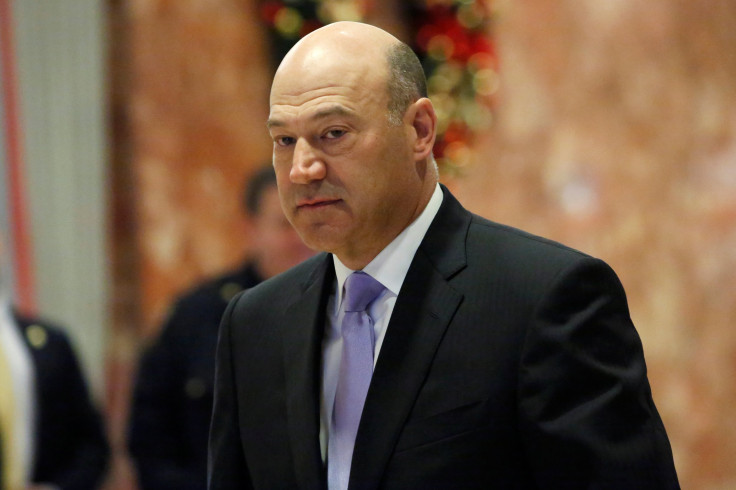Who Is Gary Cohn? Dodd-Frank To Be Scrapped With The Help Of Former Goldman Sachs President Now In The Trump Administration

President Donald Trump issued an executive order kick-starting his administration's takedown of the Dodd-Frank Wall Street Reform and Consumer Protection Act, a 2010 law that sought to correct many of the financial industry ills that led to the Great Recession. A key leader behind the administration's effort is Gary Cohn, the former second-in-command at a bank responsible for the 2008 crisis.
A former president of Goldman Sachs Group Inc. and current director of Trump’s National Economic Council, Cohn told the Wall Street Journal that he planned to scrap the law, which sought to increase monitoring of large financial institutions, raise the level of funds banks must keep on hand in case of crisis and aims to cut back predatory lending. He described the move as “a table setter for a bunch of stuff that is coming.”
“Americans are going to have better choices and Americans are going to have better products, because we’re not going to burden the banks with literally hundreds of billions of dollars of regulatory costs every year,” he said, according to a Friday report from the Journal. “The banks are going to be able to price product more efficiently and more effectively to consumers.”
Cohn is no stranger to financial regulation. In April, Goldman, where he served in an executive role for more than a decade before joining the Trump administration, coughed up $5.06 billion for, as then Acting Associate Attorney General Stuart Delery put it, the bank’s “serious misconduct” between 2005 and 2007. Goldman Sachs was found to be at fault for selling unsound and overpriced mortgage-backed securities, a key ingredient of the 2008 financial crisis, making it a natural target for Dodd-Frank.
Along with Morgan Stanley, Goldman became one of the last banks labeled “too big to fail” to transform itself into a Federal Reserve-regulated bank holding company in the fall of 2008, which diminished its independence but also prevented it from shuttering.
As part of a 2010 inquiry into Goldman’s role in the crisis and as a top trading partner of the nearly doomed insurer American International Group Inc., Cohn testified before a commission set up to investigate the events that led to the 2008 debacle. He claimed that the bank did not take advantage of its clients.
His assertions stood in stark contrast to multiple sources’ accounts of Cohn in a Bloomberg profile on the investor, one of whom described him as “the root of the problem” at Goldman.
“When you become arrogant, in a trading sense, you begin to think everybody’s a counterparty, not a customer, not a client,” former Bear Stearns Asset Management CEO Richard Marin told Bloomberg. “And as a counterparty, you’re allowed to rip their face off.”
Since then, Goldman has somewhat retreated into the commercial bank corner of the financial sector, even offering no-minimum online savings accounts in 2016—something that surprised many, as the institution is commonly seen as a symbol of the investing elite.
Cohn has flown somewhat under the radar as well, until his January appointment in the administration, when his former company gave him a departing gift of close to $300 million in cash and stock payments.
© Copyright IBTimes 2024. All rights reserved.






















